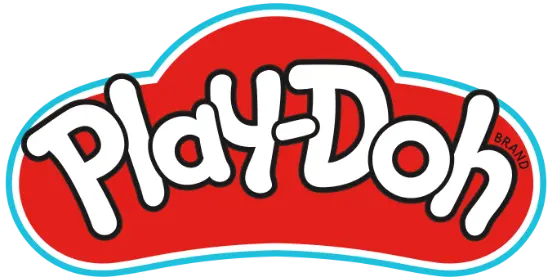Play-Doh Kids Can

Kids are ‘growing out’ of their imagination too quickly. The Play-Doh brand is empowering all kids to harness their imagination as a superpower

Imagination is a superpower. For decades, adults and children of all ages have been captivated by characters in books, movies and games that possess fantastical super abilities. Yet it turns out that all of us are born with an impressive superpower of our own -- imagination. But just like in stories, powers can lose strength and as we get older our imagination can get underused with its true power and magic forgotten. New research suggests this could be happening earlier than we might expect.
Imagination is a foundational component to creative and joyful endeavors, but it also plays a critical role in finding solutions to any challenge that might arise in our lives. Everything starts with imagination; creativity cannot exist without it and today’s challenges are only getting bigger and more complex. Many of the challenges facing kids today and tomorrow do not yet have an imagined solution; imaginative thinking is a valuable skill to develop, and parents agree, strongly associating imagination with innovation and entrepreneurship.
A global study, Imagination is a Superpower, conducted by Hasbro, Inc., on the value of imagination in the world discovered that parents believe fostering imaginative skills in their child is beneficial for both their child’s present and future. In fact, 88% of parents believe imagination is a ‘core skill’ needed immediately in childhood and simultaneously for the development of characteristics needed to thrive in adulthood.
And yet, for such an essential skill, the perception among the same parents is that imagination is currently undervalued in society - 68% of parents believe imagination is not a skill modern society values and this is reflected in how kids are educated with 64% of parents agreeing that imagination is not prioritized by education. Many teens feel the same with 47% agreeing that imaginativeness is not a skill modern society values.
So how did we get here? Imagination is a use it or lose it mental muscle. While we are all inherently born with imagination, continued access to a variety of imaginative challenges and experiences are needed for imagination to thrive. Imagination needs space, encouragement, time, and a variety of sparks to keep it strong and flexible. Beyond early childhood, imagination is not used expansively. Parents don’t feel that imagination is the central focus of the societies that today’s children are growing up in.
Imagination thrives on open ended playful experiences which invite children to respond to ‘what if?’ challenges and possibilities. Time to play in this way invites children to fill in the gaps with their imaginative thinking. But with a societal tendency of overscheduling, it leaves 65% of children wishing they had more time to imagine. Modern life is awash with imagination saboteurs, leaving parents concerned that their child’s unique imaginative potential is abandoned too soon. 71% of parents feel that children are less imaginative than they used to be in the past. Stress (48%), judgment (46%), distractions (42%), fear (25%), and time (20%) are noted as the key barriers to imagination.
As children grow up the opportunities to grow in imaginative potential are perceived to shrink. Teens and adults report using their imagination for mostly functional purposes and report they don’t use it as widely as younger children. The benefits to using imagination are expansive and include better problem solving, the ability to find opportunities, feel hope and simply, a feeling of happiness and joy. As such, the quick decline in imaginative play leaves parents craving that their children hold onto the expansive imaginative they are born with - 75% of parents are concerned that their children ‘grow out’ of imagination too quickly.
Play-Doh compound is the language of imagination with 93% of kids and parents associating the Play-Doh brand with imagination. Play-Doh compound enables an effortless flow of imagination and creation with no rules, limits, or expectations. Starting over and trying things out without the fear of failure is a key characteristic of the Play-Doh brand experience. This freedom allows kids to explore all corners of their imagination with no limits. Indeed, 69% of kids associate Play-Doh brand with “not being worried about getting it wrong.” The unique tactility of Play-Doh helps anyone of any age let go and open up their imagination for play, simply manipulating Play-Doh compound in the hands is enough to signal to the mind that it’s time to open up the portal to imagination.
"Imagination is always poised ready for play, but our environment (and mood) can keep it suppressed which means we miss out on all the amazing benefits. Play-Doh compound offers a short-cut to imagination, firing it up with a squish in between our fingertips! This tactile connection is like a lightbulb going off in our minds; imagination immediately opens up."- Emma Worrollo, Play-Doh Imagination Coach, Content Creator, and Gen Alpha brand builder
Play-Doh Kids Can, a new campaign from the Play-Doh brand empowers all kids to harness their imagination as a superpower. The Play-Doh brand is giving all kids permission to set their imagination free. By fueling them with limitless and open-ended play, kids will be equipped with the imaginative power to turn dreams into reality and see possibilities everywhere they go.
Methodology
This research involved a multi-phase project to define imagination for a Play-Doh Kid. Phase 1 was an ethnographic study in the US where 30 families (kids aged 3-17). Phase 2 involved a quantitative study with 9000 families (kids aged 6-17 and parents of children aged 3-17) across 5 markets (US, UK, France, Mexico, and Denmark).
iMAGINATION RESOURCES




